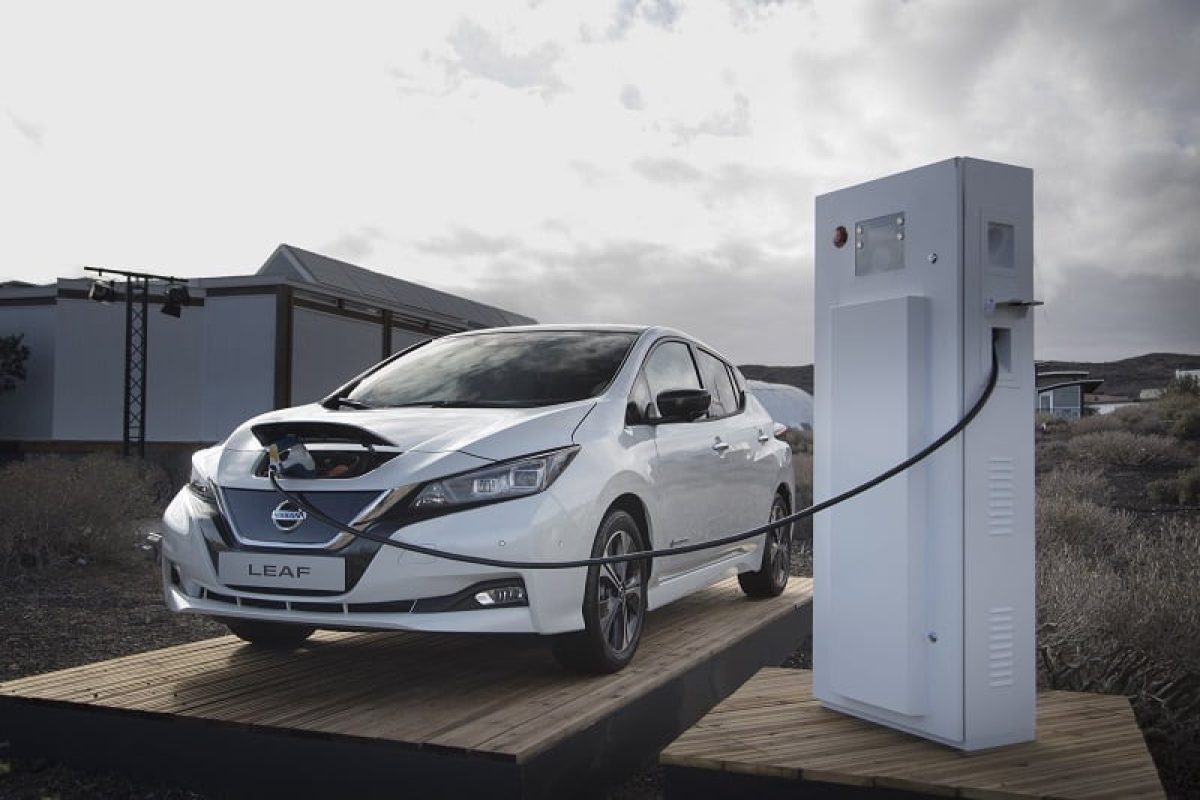THE government is backing a vehicle-to-grid (V2G) electric vehicle demonstrator project that will look at EV fleet commercial benefits.
Business, Energy and Industrial Strategy minister Richard Harrington has awarded £9.8m for the project which will target 1000 V2G installations which will be controlled by aggregators and data will be collected to understand the technical characteristics of vehicle to grid charging for both the vehicles and the electricity networks.
A consortium, led by Nissan, will bring expertise from across the whole value chain: V2G infrastructure/aggregator provider Nuvve, the energy community represented by National Grid, two Distribution Network Operators (DNOs); UK Power Networks and Northern Powergrid, with varied grid infrastructure. The research and analysis activities will be supported by Newcastle University and Imperial College London.
Francisco Carranza, managing director of Nissan Energy at Nissan Europe said that electric vehicles are not just transforming the way we drive, but also the way we live. He added: “We now look at our cars as so much more than products which simply move people from A to B – they are an intrinsic part of the way we consume, share, and generate energy. This will have a fundamental impact on the shift from fossil fuels to renewables.
“Our EVs can be plugged into the grid and support the transmission and distribution companies in making the UK grid more sustainable and more stable. The increase of electric vehicles penetration, the introduction of more and more distributed generation and storage and the overall increase in renewable energy penetration should be done smartly.”
Appointed Representative Opportunities with Wessex Fleet
Have you thought about growing your broker business? Are you looking for opportunities for growth? Then why not consider joining Wessex Fleet as an Appointed Representative?
Keeping you on the move with leasing solutions tailored to your needs
Leasys is the proud Contract Hire partner of the Stellantis brands, offering mobility solutions from medium and long-term rentals to management systems for company fleets.We work with Brokers to support all their customers requirements.
Accelerate your business with QV Systems & Leaselink
Unlock unparalleled efficiency in vehicle procurement with QV Systems’ Accelerate, now seamlessly integrated with Ebbon Automotive’s Leaselink. Tailored for brokers and funders, this integration streamlines the entire process from quote to delivery, empowering you to effortlessly source and order vehicles for your clients.
Claire Spedding, head of business development at National Grid, said: “V2G technology presents a great opportunity to support the growth of electric vehicles and manage the anticipated increase in electricity demand. Energy stored in electric vehicles can be fed back into the electricity network to help manage the network at times of high demand and be an additional tool for operating Great Britain’s electricity system.”
She added that the 1,000 chargers will be installed over the next 3 years across the electricity networks. Part of the demonstration project will include assessing whether EV owners are incentivised enough financially to provide power back to the grid when required, and help determine if any regulatory or policy interventions are required.”
Goran Strbac, Chair in Electrical Energy Systems at Imperial College London said that earlier studies carried out by the College have demonstrated that in order to increase the share of renewables in electricity supply the production and consumption of electricity will need to become more flexible.
He added: “V2G is one of the most promising flexible technologies to emerge with an increased uptake of EVs. It can provide valuable services to a range of stakeholders in the energy sector, from transmission and distribution network operators to energy suppliers. We are keen to use the opportunity to analyse data from V2G trials to be carried out in the e4Future project to obtain a detailed understanding of how flexibility from EVs can help the system reduce carbon emissions at low cost for the customers”.
V2G technology allows electric vehicles to be fully integrated into the electricity grid and will help improve grid capability to handle renewable power, making renewable sources even more widely integrated and affordable.
Nissan is investing in Vehicle-to-Grid technology since 2015, following the commitment from 21st UN Conference on Climate Change (COP21) to trial V2G technology in Europe Over the past year and a half in Denmark, it has been testing the V2G technology as a new way of driving. Going forward, this has become an offer open to all fleet customers throughout the country
Private EV owners and businesses with large EV fleets will have the opportunity to create mobile energy hubs by integrating their vehicles into the grid. Nissan EV owners can connect to the grid to charge at low-demand, cheap tariff periods, with an option to then use the electricity stored in the vehicle’s battery to feed back to the grid which could generate additional revenue for the EV owner.


















